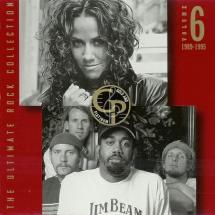Uncovering Pete Rose MVP: The Untold Story of a Baseball Legend's Most Controversial Award
#### Description:Pete Rose, often regarded as one of the greatest baseball players in history, is a name synonymous with both incredible talent and immense……
#### Description:
Pete Rose, often regarded as one of the greatest baseball players in history, is a name synonymous with both incredible talent and immense controversy. His journey through Major League Baseball (MLB) is a tale filled with remarkable achievements, including his pursuit of the all-time hits record, his multiple All-Star selections, and, of course, the infamous debate surrounding his status as a former MVP. This article delves deep into the life and career of Pete Rose, specifically focusing on the significance of his MVP award, the controversies that followed, and the lasting impact he left on the game.
Born on April 14, 1941, in Cincinnati, Ohio, Pete Rose's love for baseball began at an early age. He quickly became a standout player at his local high school, showcasing a level of skill that would eventually propel him into the professional leagues. Rose made his MLB debut with the Cincinnati Reds in 1963 and quickly earned the nickname "Charlie Hustle" for his relentless work ethic and aggressive style of play. His dedication to the game was evident in every at-bat, every base running decision, and every defensive play he made.

In 1973, Pete Rose achieved one of the highest honors in his career when he was named the National League MVP. This prestigious award recognized not only his outstanding performance on the field but also his leadership qualities and his ability to inspire his teammates. During that season, Rose led the league with a .338 batting average and accumulated 230 hits, showcasing his remarkable consistency and skill. His ability to perform under pressure and his unwavering commitment to the game made him a deserving recipient of the MVP title.
However, the story of Pete Rose is not just about his accolades and achievements; it is also marked by scandal and controversy. In 1989, Rose was banned from baseball for life after it was revealed that he had bet on games while managing the Cincinnati Reds. This revelation shattered his legacy and left fans and analysts divided over his contributions to the sport. Many argue that his on-field accomplishments, including his MVP season, should still be celebrated, while others believe that his actions off the field tarnish his reputation.

The debate surrounding Pete Rose's MVP award highlights the complexities of sports ethics and the impact that personal conduct can have on an athlete's legacy. While Rose's performance during the 1973 season was nothing short of extraordinary, the subsequent revelations about his gambling habits forced the baseball community to grapple with difficult questions about integrity and accountability. Should a player's off-field actions overshadow their on-field achievements? This question remains a topic of heated discussion among fans, historians, and sports analysts alike.
Despite the controversies, Pete Rose's influence on baseball is undeniable. He remains a symbol of hard work and determination, and his record for the most career hits—4,256—still stands today. Rose's story serves as a cautionary tale about the consequences of poor choices and the importance of maintaining integrity in sports. As fans continue to debate his legacy, it is crucial to remember the remarkable player he was during his prime and the incredible impact he had on the game of baseball.

In conclusion, the narrative surrounding Pete Rose MVP is a complex blend of triumph and tragedy. While his MVP award represents a pinnacle of success in his career, it is also intertwined with the darker aspects of his life that have led to his banishment from the sport he loved. As we reflect on his legacy, it is essential to honor both his incredible achievements and the lessons learned from his missteps. Pete Rose remains a fascinating figure in the world of sports, and his story continues to captivate and provoke discussion among baseball fans and historians.